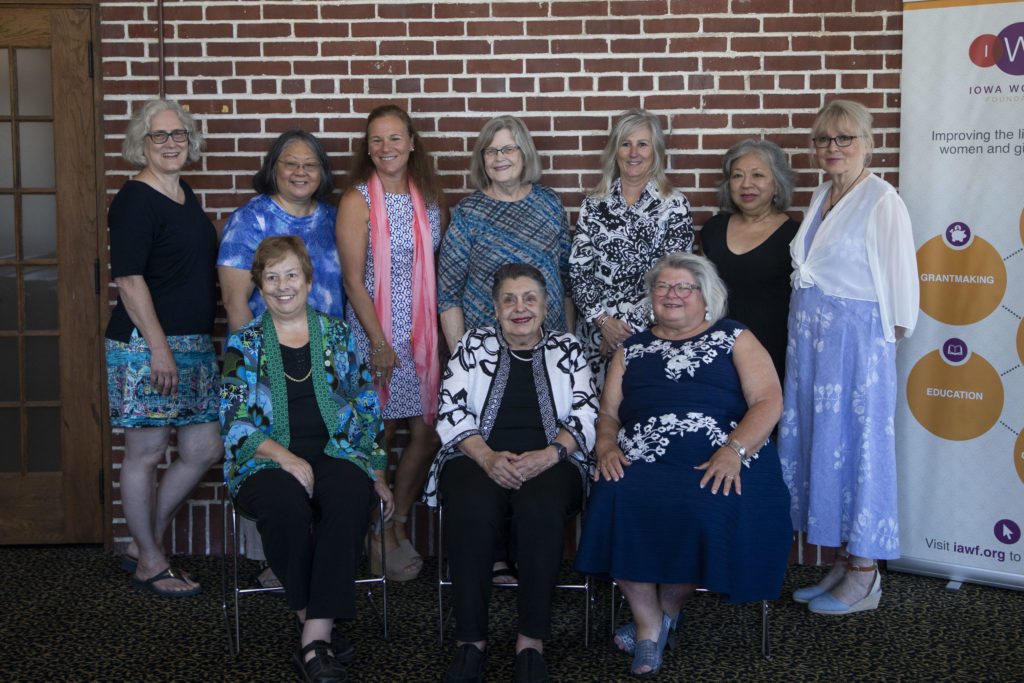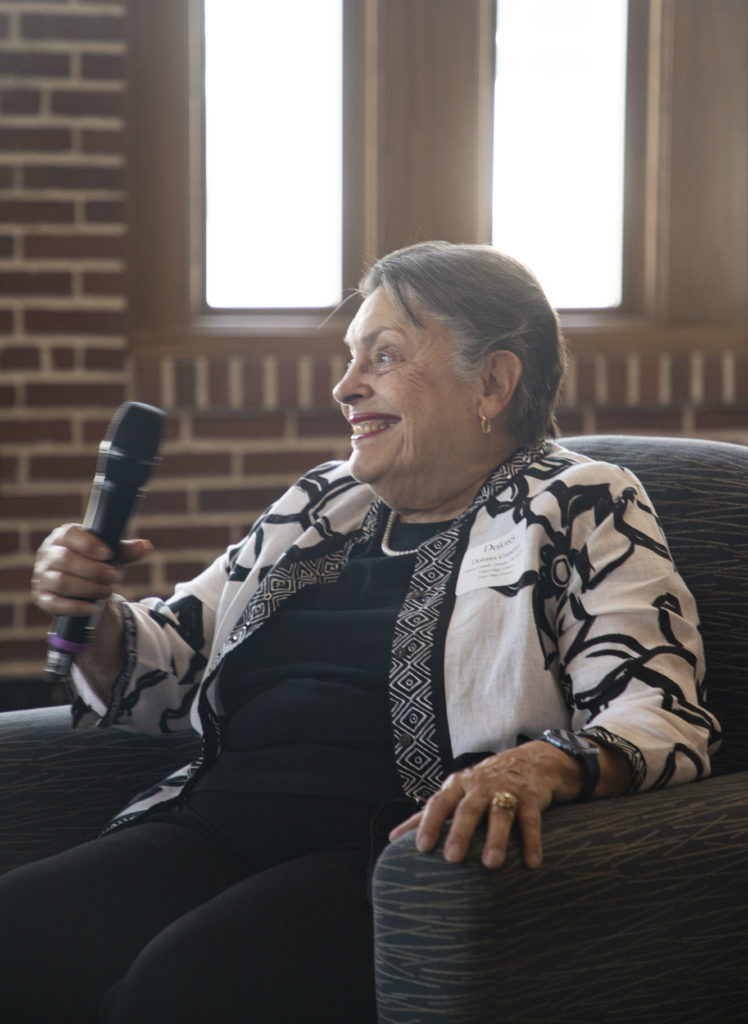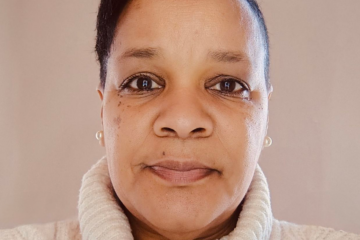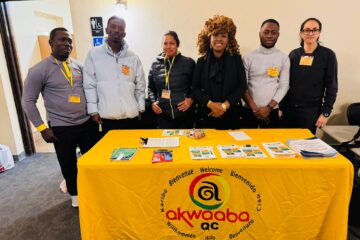By Emily Kestel

When a group of 27 women met at the Iowa Memorial Union in Iowa City in 1994, the Violence Against Women Act was weeks away from becoming law. Hillary Clinton was a year away from giving her famous “women’s rights are human rights” speech. Third-wave feminism was in full force.
But as the group of women all agreed, Iowa women’s needs weren’t being met, and something had to be done about it. None of them had experience running a philanthropic organization, yet they unanimously voted to start the Iowa Women’s Fund – now known as the Iowa Women’s Foundation – as a way to help improve the lives of women and girls across the state through grantmaking, education and advocacy.
Exactly 28 years later to the day, 10 of the founders reunited in the Iowa Memorial Union for the public announcement of the Iowa Women’s Foundation Legacy Fund on Aug 27.
The fund, which has a goal of raising $3 million by the end of the year, will be the foundation’s first-ever source of ongoing revenue. Money raised through the fund will specifically go toward grantmaking and programs, rather than its operational budget.
In its 25-year history of grantmaking, the Iowa Women’s Foundation has operated without an endowment or long-term fund, choosing instead to only redistribute the funds donated each year. That means donors know their gifts are immediately being put to use, but the downside to that is there are no reserves in the bank, advisory board member Judy Leavitt said at the event.
On average, the Iowa Women’s Foundation has 3,000 donors every year, with most of the support coming from the Waterloo-to-Iowa City corridor, Iowa Women’s Foundation CEO Dawn Oliver Wiand said.
“We know that 40% of our grantmaking went into Des Moines, and we’ve only received 5% – if we’re lucky – of our support out of the Des Moines area,” Oliver Wiand said.
She said the Iowa Women’s Foundation began the Legacy Fund in order to have a long-term fund available to increase their grantmaking across the state.
“We’re hoping to be able to double our grantmaking in the end,” she said. As of Aug. 27, the Legacy Fund has reached 79% of its goal through the first two private phases, the first of which began in 2019.
To date, the Iowa Women’s Foundation has distributed more than $1.3 million in grants to 151 organizations for 280 projects benefiting women and girls in all 99 counties.

Currently, the Iowa Women’s Foundation has three grant opportunities: Core Grants, the Building Community Child Care Solutions Fund and Emergency Grants, all of which address one or more of the six areas that the Iowa Women’s Foundation has identified as barriers to women’s economic self-sufficiency, including employment, child care, housing, education and training, transportation, and mentorship.
At the event, the founding members reflected on the past successes of the Iowa Women’s Foundation and discussed their hopes for the future.
Founding member Dolores Gutiérrez said she wants to see the foundation raise “oodles of money” so they can support even more women and girls in the state. Another founding member, Jean Jew, said she’d like to see the state become a leader for women’s and girls’ success.
“When they do the national surveys of the best places for women to live, work and have children, I want it to be Iowa,” Jew said.
Right now, Iowa is ranked in the middle of the pack in terms of best states for women and girls. The Institute for Women’s Policy Research places Iowa at No. 22.
Founding member Stephanie Clohesy said women’s philanthropic organizations are key players in movements of social change.
“In the midst of inequities that are still so pervasive in so many women’s lives, women’s funds are often the very first lifeline of support,” she said.
Iowa Women’s Foundation board chair Jen Neumann agreed, adding it takes money to get something moving in order to create societal change.
“Women’s organizations are where the rubber meets the road. I’ve always thought that when women get involved – and pardon my French – but shit gets done,” she said. “Is there a better investment than women’s equity? I don’t think so.”
“Is there a better investment than women’s equity? I don’t think so.”
Jen Neumann


